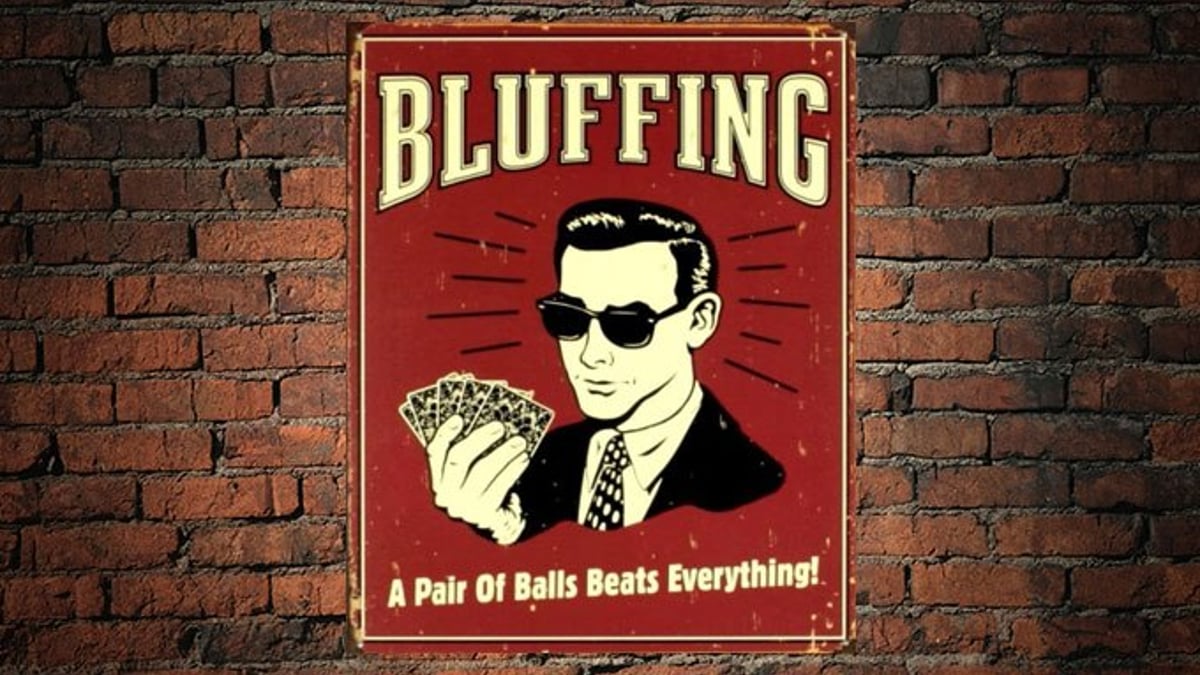Tips for Bluffing in Poker

Like any card game, poker requires an element of luck. The laws of chance inevitably mean that you're just as likely to collect a superior hand as your opponents are. Therefore, the skill element of poker lies in capitalising on your own winning hands, and deceiving your opponents enough in order for them to doubt themselves when in a winning position.
Maintain Balance
Both of these skills rely on your consistency and tactics throughout a game of poker. For example, if you’re a tight player, preferring to bide your time before venturing into hands, you’re more likely to be able to bluff your opponents, but less likely to be rewarded for your better hands - they’ll think you only go in when well-placed. So it’s important to get the balance right, as anyone you play with regularly will soon learn to gauge how often you're likely to bluff, and when.
Avoid 'Tells'
This is just one sign by which an opponent will try to read your game, as they're equally likely to look out for your physical movements. Known in the game as ‘tells,’ there are recognised signs that expose players as bluffing. Even small things count, like where a player has placed his chips - closer together usually is a sign of strength, as they’re more assured of the chips returning. Look out for twitching, sharp eye movement and covering of the face which could spell nervousness, although shaking is linked more with excitement of a good hand rather than nervousness over a bluff.
Take on Few Players
Once you’ve developed your poker face, the next step is tactics. The first rule of bluffing is to take on as few players as possible, as this reduces the chance of a player having a good hand and narrows down the amount of people you have to trick.
Create a Narrative
The most important thing is to ensure your bet has a narrative. You have to be consistent for it to be believable. For bluffing beginners, it can be a good idea to choose an imaginary hand on the flop and play the hand as you would with those cards. For example, if you go in hard on a hand pre-flop, opponents will think you’ve got pocket pairs or picture cards or some kind. Therefore, don’t try to trick them into believing you’ve hit on a three-of-a-kind or something later on, as it clearly won't tally up with your earlier moves.
Semi-Bluff
However, you can semi-bluff, which means you have the possibility of a winning hand but are relying on hitting something on the turn or river. This is dangerous in that it breaks your consistency and relies on luck, when the real object of bluffing should be to make your opponent(s) fold.
Online vs Brick-and-Mortar
It’s also worth remembering that consistency in your position throughout a hand when bluffing in online poker is even more important than in a physical casino. When opponents have no physical movements to go by, they will be concentrating even more on how you stake and when you do it, so change your game up as often as you dare to keep your rivals endlessly guessing.
Stay In The Loop With New Casino Sites & Industry News!
Industry News, Brand Updates. Sent Weekly.




